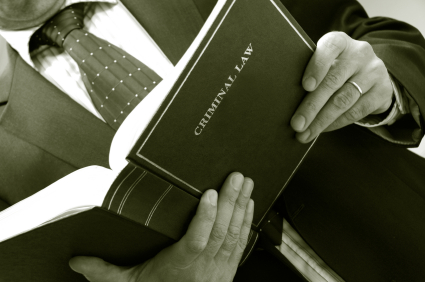Upon an arrest, the very first question the arreste will ask is how he or she can get out of jail expeditiously. Several things must happen before a jail facility can release an individual from jail. The process typically involves a “booking” process and a bail hearing that determines whether the person arrested may be released pending trial and set the bail amount. Once the accused has “posted bail” themselves or through a bail bond agent they are released.
An arrest occurs when a person has been taken into police custody and is no longer free to leave or move about after a crime has been committed or after a police investigation. When and how an arrest takes place is very important. Obviously, someone who has been handcuffed and read their rights knows they have been arrested, but not everyone who is arrested is handcuffed or explicitly told that they are under arrest. Whether or not the proper procedure is followed may determine the admissibility of evidence or even result in the case being dropped.
After an arrest a police officer will begin the “booking” process. This is an administrative process in which the police collect the suspect’s personal information and organize evidence relating to the alleged crime. The officer will record evidence, observations and statements about the alleged crime, fingerprint and photograph the suspect, conduct a criminal background check, collect the suspect’s personal property for storage until release, and place the suspect in a holding cell. This is called the discovery process, and all of the “discovery” is given to the respective criminal defense attorney who represents the defendant.
Soon after the booking, within 24 hours, a defendant is entitled to a bail hearing. The purpose of bail is to ensure that an individual accused of a crime that is released into the community will willingly return for future court hearings and not commit new crimes, intimidate victims and witnesses, or flee to another jurisdiction. Those accused of minor crimes may simply be cited and released, but all others arrested and charged with crimes will have an opportunity to argue for their release at a bail hearing.
At the bail hearing a judge examines the alleged crime, the accused’s criminal background, contacts within the community, financial resources, and length of residence in order to determine whether releasing the suspect would pose a threat to the safety of the community and whether the suspect is likely to appear at future hearings. Someone who poses a threat to the community may be held without bail. Likewise, someone who is a flight risk may be held without bail. Concerns about these and other factors also impact the amount of bail required.
More serious crimes typically result in a higher bail amount. Wealthy individuals may also face higher bail amounts to ensure that the bond represents a significant amount to the party paying. On the other hand, if the alleged crime is not serious, the accused can show evidence that they pose no risk to the community, and are likely to appear at future court hearings they may be released “on personal recognizance” without having to post bail.
Other conditions may be placed upon release including limits on travel, court ordered drug and alcohol abstinence or testing, periodic checks by an authority and restrictions on contact with victims or witnesses.
If you or a loved one is in a bind as a result of a criminal charge, immediately contact a Seattle Criminal Attorney. A Criminal lawyer is not going to judge you, and understands that everyone makes mistakes. Hiring a Seattle Criminal Lawyer to help can – at a minimum – reduce penalties, and can help direct people on how to best deal with their criminal charge, and many times even get them dismissed. So it should go without saying that someone cited for a misdemeanor or felony should hire a qualified Seattle Criminal Lawyer as soon as possible. Criminal charges can cause havoc on a person’s personal and professional life. Anyone charged with a crime in Washington State should immediately seek the assistance of a seasoned Seattle Criminal Lawyer.

